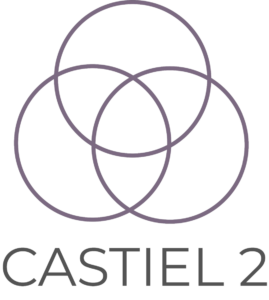The High throughput binding affinity calculator (HTBAC) is a scalable solution for adaptive personalised drug discovery. HTBAC it uses high level python object abstractions for defining simulations, physical systems and ensemble-based free energy protocols. The Runner class as part of the HTBAC abstraction uses underlying building blocks middleware developed by the RADICAL team to create and execute multiple concurrent executions of protocols on supercomputing cyberinfrastructures while abstracting and handling execution management, and data transfer.
CoE: ComBioMed
Visual GEC is a software tool for designing engineered cells and simulating biochemical interactions. The Genetic Engineering of Cells (GEC) software, developed by the Biological Computation team at Microsoft Research (Cambridge, UK), is a modelling tool that can be used to design and simulate synthetic genetic circuits. At the core is a domain-specific programming language for biochemical systems (LBS), originally developed at the University of Edinburgh. The tool supports stochastic and deterministic simulation of the temporal dynamics of chemical reaction networks, but also spatio-temporal dynamics via reaction-diffusion equations. Parameter inference can also be performed using Metropolis-Hastings Markov chain Monte Carlo with time-series data.
CoE: ComBioMed
Playmolecule, developed by the team of Prof Gianni de Fabritiis at the Universitat Pompeu Fabra (ES), is an intuitive platform to access a diverse set of web applications for molecular research. It is a repository of free best-in-kind applications with a diverse set of solutions like molecular predictors and modelling tools. Simulations are run on GPUGRID for free or via Amazon AWS; The scalability is provided by Amazon via acecloud, the cloud interfacing software by Acellera.
CoE: ComBioMed
HTMD, developed by the team of Prof. Gianni de Fabritiis at the Universitat Pompeu Fabra (ES), is a programmable environment to prepare, execute, visualize and analyse Molecular Dynamic simulations in HPC or HTC systems, including AWS. It is a Python-based programmable environment to perform system preparation and building, execution of simulations with different MD codes using adaptive sampling schemes and generate Markov State models to analyse simulations. The code is now maintained by Acellera; it is distributed commercially, but it remains free for academic users.
CoE: ComBioMed
The Binding Affinity Calculator (BAC), developed by the team of Prof Peter Coveney at University College London (UK), is a workflow tool that runs and analyses simulations designed to assess how well drugs bind to their target proteins and the impact of changes to those proteins. It is a collection of scripts which wrap around common molecular dynamics codes to facilitate free energy calculations. Use of ensemble simulations to robust, accurate and precise free energy computations from both alchemical and end-point analysis methodologies. BAC is a fairly complex tool to use, so at the moment the development team at UCL have made it available as part of consulting services or research collaborations. However, EnsembleMD provides user-friendly interfaces to related binding affinity calculation services, which will be made available as an App in the on-line store of associate partner DNAnexus; a beta version is being used by pharma.
CoE: ComBioMed

The website is operated as part of the CASTIEL 2 project. This project has received funding from the European High-Performance Computing Joint Undertaking (JU) under grant agreement No 101102047. The JU receives support from the European Union‘s Digital Europe Programme and Germany, Italy, Spain, France, Belgium, Austria, Estonia.

